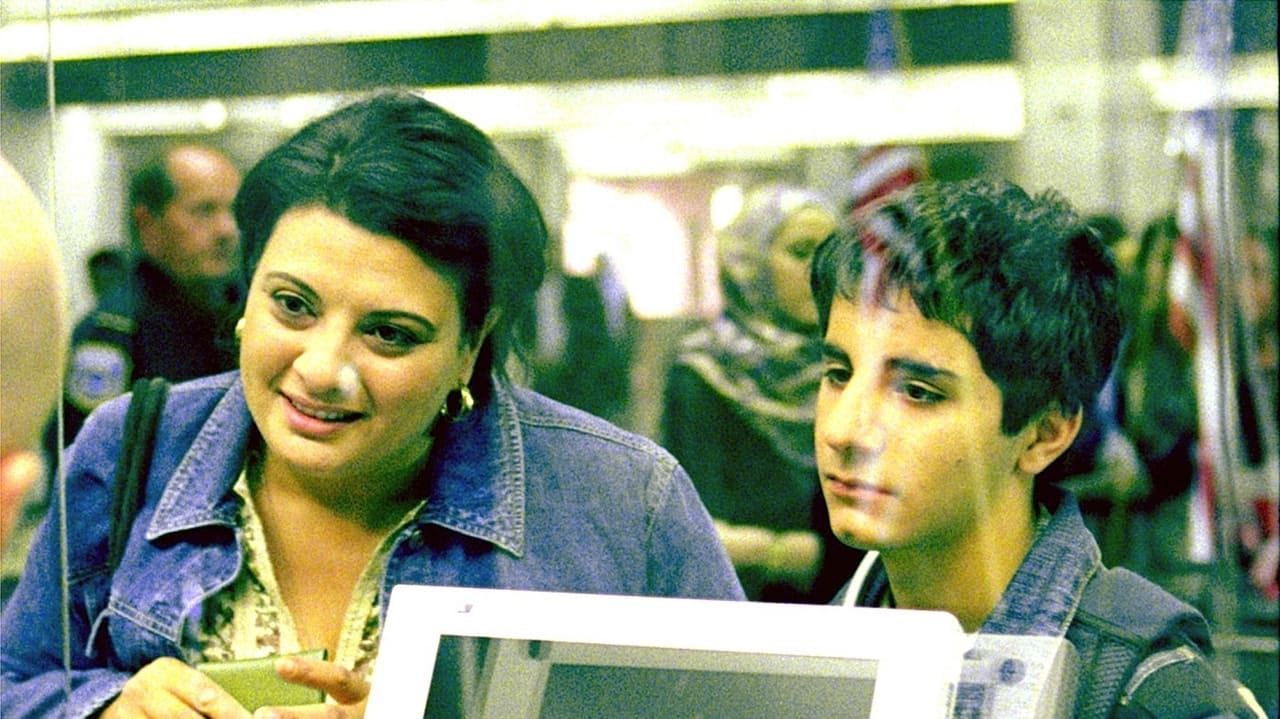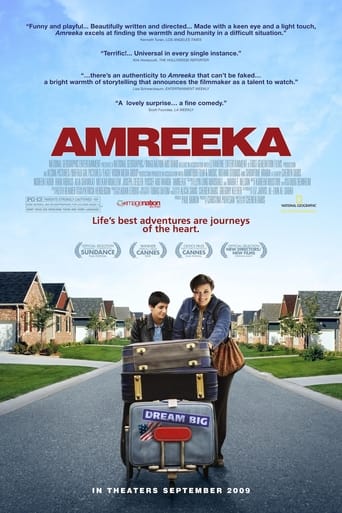

It's 2003 at the start of the Iraq war. Muna Farah and her son Fadi are Palestinian Christians living in Bethlehem under occupation. They are surprised to find the US has approved their long forgotten visa applications. They join Muna's sister Raghda Halaby and her family in Illinois suburbs. Airport security confiscates a tin of cookies which had all of their money. Muna is embarrassed and tries to hide it. Raghda's husband Nabeel is a doctor struggling to keep his patients. They get a death threat. Raghda is homesick despite being away for 15 years. Muna can't get a banking job and has to work at White Castle. Fadi joins his opinionated cousin Salma (Alia Shawkat) in school as he faces prejudice from classmates.This is a great little indie of Fresh Off the Boat experiences. Nisreen Faour delivers a perfect mix of hope and bewilderment. She is endearing and is the center of the movie. The experiences are not necessarily new but it is always compelling no matter the era. In this one, the experiences are colored by the middle east and the second Iraq war.
... View MoreLucky me, seeing Alia Shawkat twice in a row, unexpectedly, on a Saturday film night. This time she plays an American cousin to a Palestinian boy who comes to America with his mother. It starts out in Palestine (West Bank) though, and it's really interesting to get a sense of that place through a piece of film drama (other than the news or a documentary).Main character Muna Farah is played very well by Nisreen Faour, as her struggles with her new life really come across. Director Cherien Dabis said it like this, elsewhere on the net: 'had a sweetness about her [...] a kindness and a childlike sense of wonder. There was something about her that was so youthful, and yet, I could still see in her eyes the depth of sadness that her life experience had given her.' That's what I was trying to say!The story is more like a series of incidents, the main lines being Muna trying to find work and her son Fadi trying to regain his identity (though there is plenty beyond that, like how the family they stay with is coping). There is the school principal who befriends Muna, and there is the hostile schoolboy who opposes Fadi - and from there on it goes... and quite suddenly ends - leaving me to think this would have made great material for at least a miniseries.On the whole it's a very sympathetic little film - low key and low budget - truly with its heart in the right place.
... View More"Amreeka" has, I would say, all the freshness and the weaknesses an indie movie comes with. Being about a family of Palestinian immigrants struggling to find their way in America and facing all kind of anti-Muslim and anti-Arab stereotypes, this movie cannot escape its own stereotypes. It is a movie that looks schematic in many of its moments. Not in all moments, let's be clear on this point. It is a movie breathing of sincerity and it has a certain pathos. However, sometimes it seems that it gathers all the bad guys on one side and the good guys on the other (you can guess who are the bad guys, and who are the good ones). And after all these, the end seems idyllic; they want to send the good message so to speak, only I'm wandering whether it happens like that also in real life.Well, one can say that this movie is dealing with a reality which is by itself schematic. This is true: bigotry of any kind is always schematic (to name the least of its sins). The problem is that a movie has an artistic reality of its own, and this artistic reality must be convincing, regardless how schematic the depicted reality could be.The great asset of this movie is the lead actress, Nisreen Faour. She creates an unforgettable personage, with passion, with honesty, with conviction and stamina. And she is so amazing that the whole movie is contaminated by her enthusiasm and good will.Let me mention here also Hiam Abbass , a very good actress that I have also seen in many other movies (The Visitor, Munich, Paradise Now, The Syrian Bride).
... View MoreI can see from some of the reviews that some people didn't like this heart warming little film. that seems awfully hard. what's not to like? sure it's simplistic, but so many things about the heart and feelings are. besides, it's very straight forward and makes some very good points.the film benefits greatly from a excellent and touching performance by actress Nisreem Faour as the main protagonist Muna, who immigrates from Palestine to Illinois here in Amreeka. the performance is based all on heart and the feeling functions rather than anything cerebral which is why it is so moving and special when so many actors over think their roles to the point of rigid contrivance. Faour's performance just flows naturally,smoothly,and believably without any hint of falseness.politically there is nothing controversial about this film really. unless maybe you're Zionist extremist or someone with a psycho racist agenda. i think people on both sides are getting a little tired of the West Bank being occupied to such an extent and of having the Palestinian people vilified all the time. this soft peddling little film might just be the ticket to get people to lighten up. if they can lighten up enough to watch it.
... View More